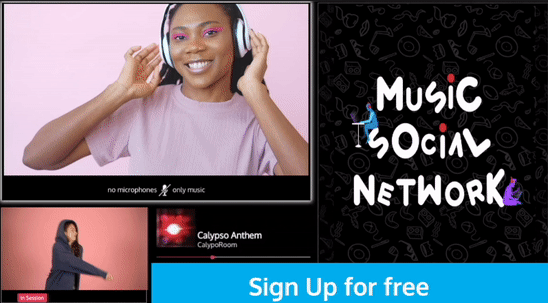How do record labels make money? 9 proven ways
Though it's not always simple, there are numerous ways for record labels to make money. There are options for you to do so, whether your objective with the label is to go full-time or to generate some side income.
If you are aware of how the various revenue streams operate, a record label firm can be profitable. We'll discuss a number of ways record labels might generate income in this article.
360 Deals
A label and an artist may enter into an exclusive contract, or "360," as it is known in the business. A recording label receives a percentage of an artist's earnings from other sources, such as concerts, merchandising, television appearances, or publishing, under a 360-degree arrangement in addition to a share of the artist's music sales.
The term "360 deal" was given to the agreement since it was "all in." All of this is done with the intention of recovering the costs associated with introducing a new artist and kicking off their career.
Sales and Streaming
Sales and streaming are the earliest and most visible ways for a record label to generate revenue. The listener is the product's consumer, and the music itself is the product.

The label typically keeps 60%–70% of the revenue from each iTunes download and normally receives between $0.003 and $0.005 for each stream on Spotify.
The label then needs to divide the earnings with the artist and other people who helped record the music, which isn't a lot of money. To gain a lot of streams when the music is out, record labels must use a portion of their income to promote the songs they are recording.
Publishing and Licensing
For independent companies and artists, music publishing and licensing are becoming an increasingly significant source of income. While licensing makes your music available for sync partnerships with visual media such as ads, games, TV shows, and movies, publishing refers to the ownership of songs and compositions.

Royalties
Every time one of its recordings is played, a record label receives royalties as the owner of the recording copyright.
The use or digital reproduction of the music's sound recording generates recording royalties. The owner of the copyright recording is entitled to an income whenever music is streamed, downloaded, or purchased in a physical format.
Thus, each time one of their tracks is played, the record label receives royalties. The recording artists (performers) on the recording will then receive a percentage of the recording royalties from the record company.
Independent artists (those without a signed record deal) should be aware that they most likely possess their own recording copyrights.
Events promotion
One aspect of investing in an artist is concert promotion. If your artist participates in performances or concerts and such events are profitable, you, the label, will receive a portion of the proceeds. A straightforward approach to guaranteeing a label continues to make money is to ensure an artist has well-publicized gigs.

Shows receive additional revenue from the sale of tickets and goods (which a label may also own some portion of). A label shouldn't save money on this: In the absence of publicity, there won't be any purchases of tickets, goods, music, or live streaming.
Finding festivals
Festivals serve as both advertisements and prospective revenue streams. Although a record company won't profit directly from the festival, they will promote performers. As a result of the festival, the record label will make more money in the future thanks to this exposure, which will increase album streaming and sales.

Selling tickets
Numerous labels don't profit from ticket sales, unless they get their artist to sign some form of a 360 deal. Your label must also be the show's promoter and not use a middleman if it wants to earn money without having such an arrangement in place.
The artist will also receive a large portion of the money. The musicians will probably rely on ticket sales, which are one of their main sources of income. A label should budget for the artist to receive 75% to 90% of the total revenue from ticket sales. The record label or the promoter receives the remainder.
Social media
Users of social media platforms like TikTok, Instagram, Facebook, or Tumblr have all witnessed live performances by musicians, and many of these platforms pay the content creators that helped them become so well-known.

By managing their own social media profiles, notably on Instagram and TikTok, record labels can benefit from this. In addition to the advertising advantages, which increase as more people hear the songs and the artists earn more money, record companies and artists can directly profit from these apps.
A label's social media manager can sell merchandise, promote events like concerts and festivals, release new music clips, solicit sponsorships, and promote each individual artist with their own page. Making money from applications and social media requires engaging with users and acquiring new, genuine, interested ones.
Merchandising
Record labels frequently generate extra cash by selling items at live concerts, online, and through social media. Wearing band shirts, pins, posters, bags, and hoodies is a popular way for fans to show support for their favorite musicians. When done properly, concert tour memorabilia evokes nostalgia that lasts a lifetime.
Signed posters make excellent promotional giveaways; reduced t-shirts are ideal for the holiday season; collectors are still interested in CDs and vinyl if the artist caters to their interests.

A label must generate more revenue than they spend on the product. This entails finding supplies at a fair price, keeping an eye on the manufacturing budget, and selling the product that is currently in stock before ordering an excessive amount of more. If a product isn't doing well, the company may provide discounts to customers or include it in giveaways to attract attention on social media.
Conclusion
Being a successful independent record label is difficult and time-consuming. Starting to make money should be a little easier for people who comprehend how the business operates and who take advantage of all opportunities to do so.
We hope you enjoyed reading this post, and if you'd want more advice for advancing your musical career, please visit our blog area. There, you'll find a lot more helpful articles, tips, and suggestions.
There is no doubt that you are here because you enjoy music, so please take advantage of the opportunity to listen to it in CalypsoRoom while chatting with others via webcams.
Are you a music artist or label and do you want to give your music a further dimension? Do you own or co-own the master and publishing rights to your music? Consider to post it on CalypsoRoom listening to it together with your super fans, at the same time, connected by webcams.
Thanks for reading,
CalypsoRoom Team
back
Written by CalypsoRoom Editorial Team
The CalypsoRoom Editorial Team is a skilled and diverse group of writers, researchers, and industry specialists who have access to Calypso's data and information in order to give you broad knowledge about the music industry as well as helpful advice to help you manage your music and dancing career.
Updated January 2023
Company number: 681223
James's Walk 31, Dublin, Ireland
contact@calypsoroom.com
+353 (89) 435 8928





